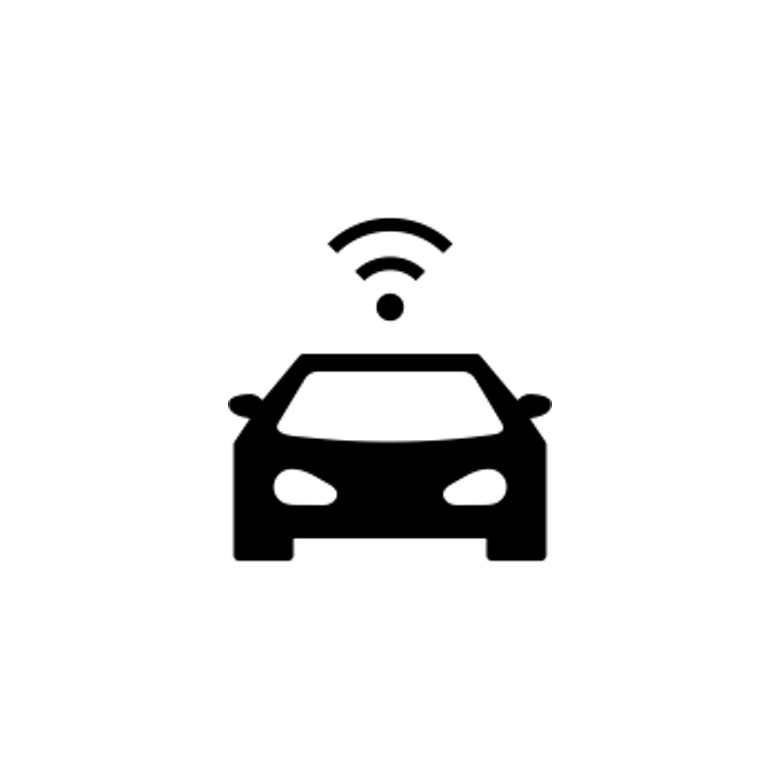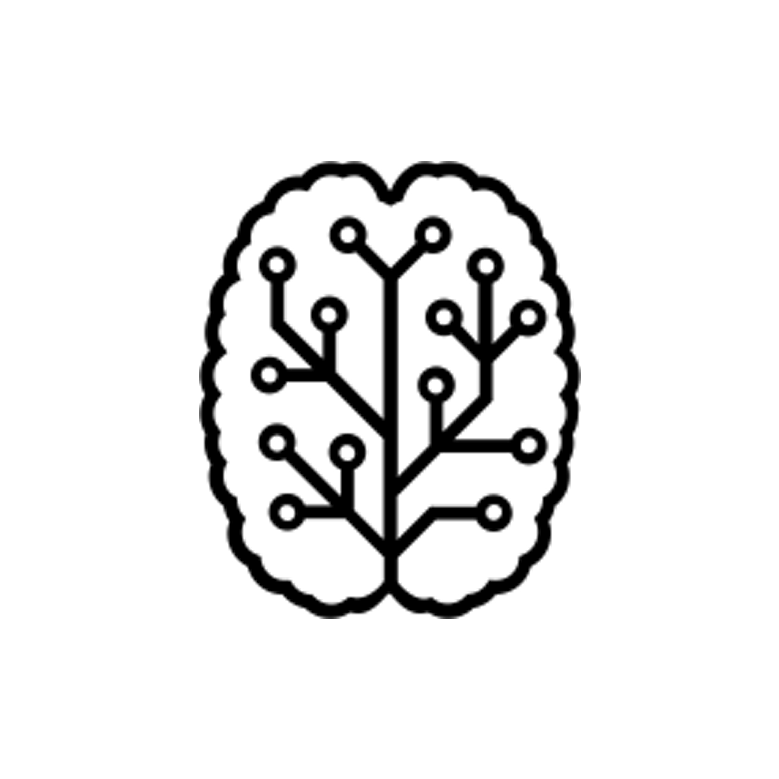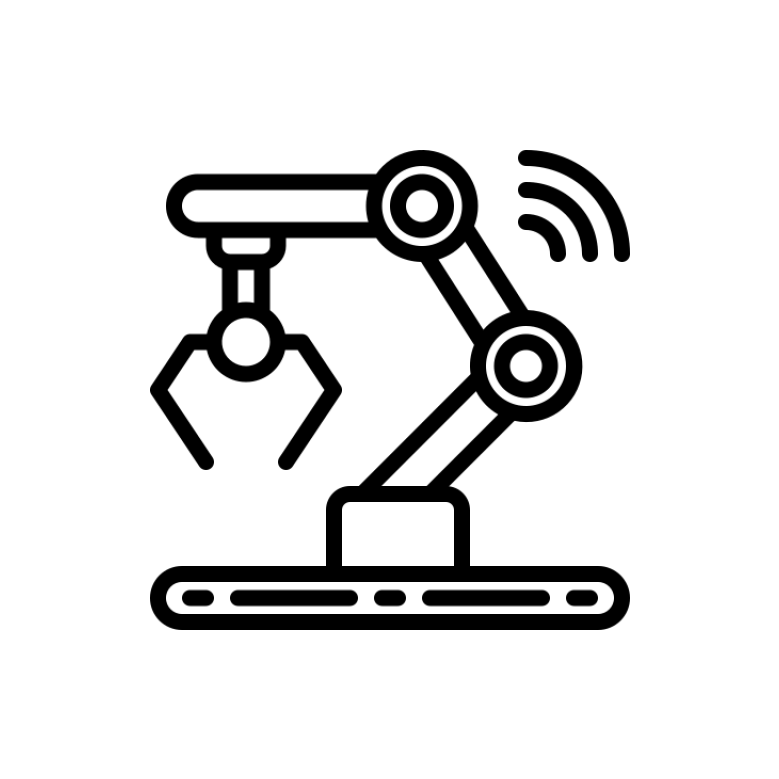
Slide title
Write your caption hereButton
Slide title
Write your caption hereButton
Investment Philosophy
Autonomous Vehicles
94% of all car accidents are caused by human error. Self-driving vehicles have the potential to save over one million lives a year. Ultimately, autonomous vehicles significantly reduce traffic, accidents, noise, and pollution, while increase transit efficiencies. Fully-autonomous cities will, over the coming decades, disrupt and create new industries. Autonomous vehicles will do to cars what automobiles did to horse-drawn carriages.
Artificial Intelligence
As artificial intelligence becomes increasingly more ubiquitous, the implications become more important. AI will improve efficiencies in nearly every sector; from healthcare to the automotive industry to manufacturing. AI will significantly reduce the time that humans waste on tedious, mundane, or labor-intensive tasks, as well as create new industries. AI is expected to add over $15 trillion to the global economy by 2030.
5G
5G mobile networks will advance IoT deployments, thus greatly improving human productivity and urban efficiencies. 5G networks will do more than increase cell phone speeds. The implementation of 5G will also help cities process data from millions of connected IoT devices and use Smart City technology to manage traffic flow, power use, air quality, and public safety. 5G Smart City solutions have the potential to save cities $160 billion when applied to traffic management and electric grids alone.
Clean Energy
Renewable energy sources, such as wind and solar, reduce reliance on fossil fuels, and are not only better for the environment, but are also cheaper. Clean energy generation, coupled with energy storage, will allow for the sustained growth of humanity.
Electric Vehicles
Electric vehicles, especially in many of Asia’s highly polluted cities, will save and improve lives and contribute to a cleaner environment. In China alone, over 1.6 million deaths are caused by air pollution each year. In the U.S., the transportation sector accounts for 29% of all greenhouse gas emissions. Dozens of countries have pledged to mandate all new vehicles on the road to have zero emissions in the next few decades, and electric vehicles are the clear leading zero emissions technology.
Educational Technology
Educational technology uses artificial intelligence to create an individualized curriculum for each student. Educational technology also improves accessibility to education, with students engaging in long distance learning even for full degree programs. As industries transform and are disrupted by new technologies, reeducation through educational technology will be required for people to adapt to evolving jobs.
Automated Manufacturing
Automation provides mechanical precision and consistency, which can reduce waste and decrease operating costs. Automated manufacturing will also contribute to an evolving job market and will eventually create more jobs than what will be initially displaced. While nearly 7 million jobs are likely to be displaced by AI advances in automation over the coming decades, significantly more jobs, as well as hundreds of new industries, are expected to be created. In addition to improved assembly and sorting, e-commerce will be further transformed when last-mile delivery is improved. Automated last-mile delivery is essential for maintaining profitability, while meeting customer expectations for fast and convenient delivery services.
Batteries
Batteries for electric vehicles and energy storage are important for a clean environment. Storage batteries allow for the power produced by renewable energy sources to be stored until needed. These batteries help with renewable energies’ inconsistencies in power generation and evens out the electricity load curve. The development of inexpensive, reliable, and powerful storage batteries has the potential to reduce nearly all reliance on fossil fuels. Batteries for electric vehicles are necessary in the transition to sustainable transport, and significantly reduce the cost, availability, and range of electric vehicles.
Clean Water
844 million people (1 in 9) lack access to safe drinking water, and 2.3 billion people do not have access to basic sanitation facilities. One million people die each year from water, sanitation, and hygiene-related diseases. Technologies that purify water will improve and save the lives of many and may even prevent war.
Telemedicine
Telemedicine improves access to healthcare for patients, lowers the cost of healthcare for patients, expands doctors' reach, and reduces wait time. Telemedicine also reduces patient risk of getting healthcare-associated infections (HAI), which are infectious diseases that patients contract in healthcare facilities while being treated for different medical issues. Every day, one in 31 hospital patients in the U.S. contracts an HAI, and 99,000 Americans die from HAIs every year. Telemedicine will significantly prevent these, as the patient does not need to leave their home to speak and get diagnosed by a doctor. While curative medicine is the priority of today, preventative medicine should be the priority of tomorrow.
Autonomous Vehicles
94% of all car accidents are caused by human error. Self-driving vehicles have the potential to save over one million lives a year. Ultimately, autonomous vehicles significantly reduce traffic, accidents, noise, and pollution, while increase transit efficiencies. Fully-autonomous cities will, over the coming decades, disrupt and create new industries. Autonomous vehicles will do to cars what automobiles did to horse-drawn carriages.
Artificial Intelligence
As artificial intelligence becomes increasingly more ubiquitous, the implications become more important. AI will improve efficiencies in nearly every sector; from healthcare to the automotive industry to manufacturing. AI will significantly reduce the time that humans waste on tedious, mundane, or labor-intensive tasks, as well as create new industries. AI is expected to add over $15 trillion to the global economy by 2030.
5G
5G mobile networks will advance IoT deployments, thus greatly improving human productivity and urban efficiencies. 5G networks will do more than increase cell phone speeds. The implementation of 5G will also help cities process data from millions of connected IoT devices and use Smart City technology to manage traffic flow, power use, air quality, and public safety. 5G Smart City solutions have the potential to save cities $160 billion when applied to traffic management and electric grids alone.
Clean Energy
Renewable energy sources, such as wind and solar, reduce reliance on fossil fuels, and are not only better for the environment, but are also cheaper. Clean energy generation, coupled with energy storage, will allow for the sustained growth of humanity.
Electric Vehicles
Electric vehicles, especially in many of Asia’s highly polluted cities, will save and improve lives and contribute to a cleaner environment. In China alone, over 1.6 million deaths are caused by air pollution each year. In the U.S., the transportation sector accounts for 29% of all greenhouse gas emissions. Dozens of countries have pledged to mandate all new vehicles on the road to have zero emissions in the next few decades, and electric vehicles are the clear leading zero emissions technology.
Educational Technology
Educational technology uses artificial intelligence to create an individualized curriculum for each student. Educational technology also improves accessibility to education, with students engaging in long distance learning even for full degree programs. As industries transform and are disrupted by new technologies, reeducation through educational technology will be required for people to adapt to evolving jobs.
Automated Manufacturing
Automation provides mechanical precision and consistency, which can reduce waste and decrease operating costs. Automated manufacturing will also contribute to an evolving job market and will eventually create more jobs than what will be initially displaced. While nearly 7 million jobs are likely to be displaced by AI advances in automation over the coming decades, significantly more jobs, as well as hundreds of new industries, are expected to be created. In addition to improved assembly and sorting, e-commerce will be further transformed when last-mile delivery is improved. Automated last-mile delivery is essential for maintaining profitability, while meeting customer expectations for fast and convenient delivery services.
Batteries
Batteries for electric vehicles and energy storage are important for a clean environment. Storage batteries allow for the power produced by renewable energy sources to be stored until needed. These batteries help with renewable energies’ inconsistencies in power generation and evens out the electricity load curve. The development of inexpensive, reliable, and powerful storage batteries has the potential to reduce nearly all reliance on fossil fuels. Batteries for electric vehicles are necessary in the transition to sustainable transport, and significantly reduce the cost, availability, and range of electric vehicles.
Clean Water
844 million people (1 in 9) lack access to safe drinking water, and 2.3 billion people do not have access to basic sanitation facilities. One million people die each year from water, sanitation, and hygiene-related diseases. Technologies that purify water will improve and save the lives of many and may even prevent war.
Telemedicine
Telemedicine improves access to healthcare for patients, lowers the cost of healthcare for patients, expands doctors' reach, and reduces wait time. Telemedicine also reduces patient risk of getting healthcare-associated infections (HAI), which are infectious diseases that patients contract in healthcare facilities while being treated for different medical issues. Every day, one in 31 hospital patients in the U.S. contracts an HAI, and 99,000 Americans die from HAIs every year. Telemedicine will significantly prevent these, as the patient does not need to leave their home to speak and get diagnosed by a doctor. While curative medicine is the priority of today, preventative medicine should be the priority of tomorrow.
Autonomous Vehicles
Self-driving vehicles have the potential to save over one million lives a year. Autonomous vehicles will significantly reduce traffic, accidents, noise, and pollution, and transit inefficiencies. Autonomy applications in cities will, over the coming decades, disrupt and create new industries. Autonomous vehicles will do to cars what automobiles did to horse-drawn carriages.
Artificial Intelligence
As artificial intelligence becomes increasingly more ubiquitous, the implications become more important. AI will improve efficiencies in nearly every sector; from healthcare to the automotive industry to manufacturing. AI will significantly reduce the time that humans waste on tedious, mundane, or labor-intensive tasks, as well as create new industries. AI is expected to add over $15 trillion to the global economy by 2030.
5G
5G mobile networks will advance IoT deployments, thus greatly improving human productivity and urban efficiencies. 5G networks will do more than increase cell phone speeds. The implementation of 5G will also help cities process data from millions of connected IoT devices and use Smart City technology to manage traffic flow, power use, air quality, and public safety. 5G Smart City solutions have the potential to save cities $160 billion when applied to traffic management and electric grids alone.
Clean Energy
Renewable energy sources, such as wind and solar, reduce reliance on fossil fuels, and are not only better for the environment, but are also cheaper. Clean energy generation, coupled with energy storage, will allow for the sustained growth of humanity.
Electric Vehicles
Electric vehicles, especially in many of Asia’s highly polluted cities, will save and improve lives and contribute to a cleaner environment. In China alone, over 1.6 million deaths are caused by air pollution each year. In the U.S., the transportation sector accounts for 29% of all greenhouse gas emissions. Dozens of countries have pledged to mandate all new vehicles on the road to have zero emissions in the next few decades, and electric vehicles are the clear leading zero emissions technology.
Educational Technology
Educational technology uses artificial intelligence to create an individualized curriculum for each student. Educational technology also improves accessibility to education, with students engaging in long distance learning even for full degree programs. As industries transform and are disrupted by new technologies, reeducation through educational technology will be required for people to adapt to evolving jobs.
Automated Manufacturing
Automation provides mechanical precision and consistency, which can reduce waste and decrease operating costs. Automated manufacturing will also contribute to an evolving job market and will eventually create more jobs than what will be initially displaced. While nearly 7 million jobs are likely to be displaced by AI advances in automation over the coming decades, significantly more jobs, as well as hundreds of new industries, are expected to be created. In addition to improved assembly and sorting, e-commerce will be further transformed when last-mile delivery is improved. Automated last-mile delivery is essential for maintaining profitability, while meeting customer expectations for fast and convenient delivery services.
Batteries
Batteries for electric vehicles and energy storage are important for a clean environment. Storage batteries allow for the power produced by renewable energy sources to be stored until needed. These batteries help with renewable energies’ inconsistencies in power generation and evens out the electricity load curve. The development of inexpensive, reliable, and powerful storage batteries has the potential to reduce nearly all reliance on fossil fuels. Batteries for electric vehicles are necessary in the transition to sustainable transport, and significantly reduce the cost, availability, and range of electric vehicles.
Clean Water
Over two billion people lack access to safe drinking water, and 4.5 billion people do not have access to basic sanitation facilities. 1.8 million people die each year from water, sanitation, and hygiene-related diseases. More than 80% of the world's wastewater is released into the environment without treatment. Technologies that purify water will improve and save the lives of many and may even prevent war.
Telemedicine
Telemedicine improves access to healthcare for patients, lowers the cost of healthcare for patients, expands doctors' reach, and reduces wait time. Telemedicine also reduces patient risk of getting healthcare-associated infections (HAI), which are infectious diseases that patients contract in healthcare facilities while being treated for different medical issues. Every day, one in 31 hospital patients in the U.S. contracts an HAI, and 99,000 Americans die from HAIs every year. Telemedicine will significantly prevent these, as the patient does not need to leave their home to speak and get diagnosed by a doctor. While curative medicine is the priority of today, preventative medicine should be the priority of tomorrow.

Slide title
Write your caption hereButton
Slide title
Write your caption hereButton











